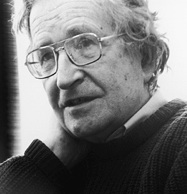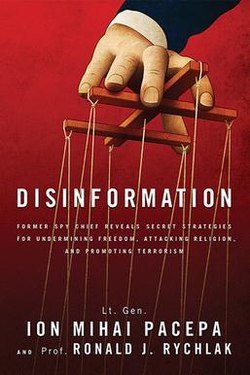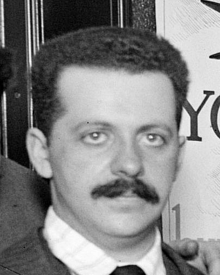Two examples have been publicized in recent days:
Hindus, the “new Jews” —

The article is
- Gopalan, Aparna: “The Hindu Nationalists Using the Pro-Israel Playbook.” Jewish Currents. Accessed July 19, 2023. https://jewishcurrents.org/the-hindu-nationalists-using-the-pro-israel-playbook.
Aparna Gopalan describes how Hindu nationalists have been defending the surge in the Hindu human-rights violations (including a reinforcement of the caste system) in India by openly comparing their historical experiences and modern criticisms with the experiences of the Jews. Just as criticism of the policies of the state of Israel is often met with charges of antisemitism, so criticism of Prime Minister Modi and extremist treatment of India’s Muslims is being denounced as Hinduphobia — thus attempting to silence the opposition.
Faced with rising scrutiny over India’s worsening human rights record, Hindu groups have used “the same playbook and even sometimes the same terms” as Israel advocacy groups, “copy-pasted from the Zionist context,” said Nikhil Mandalaparthy of the anti-Hindutva group Hindus for Human Rights (HfHR). Hindu groups have especially taken note of their Jewish counterparts’ recent efforts to codify a definition of antisemitism—the International Holocaust Remembrance Alliance (IHRA) working definition—that places much criticism of Israel out-of-bounds asserting that claims like “the existence of a State of Israel is a racist endeavor” constitute examples of anti-Jewish bigotry.
The comparison has been conscious and deliberate and extends into political action within the U.S.
Since the early 2000s, Indian Americans have modeled their congressional activism on that of the American Jewish Committee (AJC) and AIPAC; Indian lobbyists have partnered with these groups to achieve shared defense goals, including arms deals between India and Israel and a landmark nuclear agreement between India and the US.
As for the historical comparison, it becomes a little strained:
ON DECEMBER 8TH , the HAF hosted a webinar with the Israel-advocacy organization StandWithUs, the first event in a three-part series titled “Shine a Light on Antisemitism & Hinduphobia: What Hindus and Jews Can Learn from Each Other.” StandWithUs national director of special programs Peggy Shapiro greeted the audience with a “Namaste.” Shukla followed with a “Shalom.” The exchange kicked off a call-and-response structure that carried through the next 75 minutes, with Shapiro presenting a piece of information about antisemitism, and Shukla following with a sound bite about Hinduphobia. The speakers presented even their personal histories in parallel: After Shapiro introduced herself by saying, “I was born in a refugee camp in Germany. My parents were Holocaust survivors,” Shukla followed with, “I was born in California to parents who had left dire situations in India.” (The HAF did not provide answers to a follow-up question about the conditions under which Shukla’s family emigrated.)
History is being recast for Hindus as a history of victimization. The purpose is to justify the actions of the dominant political party of extremist nationalist Hindus in India.
In facing off against anti-caste activists, such Hindu groups generally position themselves as the victimized party, arguing that the critiques in question “scapegoat” Hindus and Hinduism. In 2006, Sangh-affiliated organizations began a months-long campaign to cut mentions of caste discrimination from sixth grade history textbooks in California; that same year, the HAF sued the state in an attempt to get the textbooks thrown out altogether (allied organizations pursued a similar suit in 2017).

The same article notes that Prime Minister Modi is a longtime member of the Rashtriya Swayamsevak Sangh (RSS), a Hindu nationalist paramilitary force that originated in the 1920s being inspired by Mussolini’s Black Shirts and Nazi “race pride.”
Still on the side of the Nazis, I recall one high school history teacher expressing outrage over the propaganda infusing a movie his class had had to watch about the Second World War: one scene that stood out was of Ukrainian civilians lining the streets cheering the German army marching through as liberators from Russian rule. I was present at the time and that scene came to mind when I read about a New York Times article rewriting history to blame Russia for the start of that war . . . .
Not Hitler, but … Russia started World War 2 —
In its latest foray into the realm of historical falsification, the New York Times on Tuesday published a news analysis pinning the blame for World War II on the Soviet Union. The lengthy article authored by Andrew E. Kramer, entitled “A Current War Collides with the Past: Remnants of World War II in Ukraine,” makes no mention of either the Holocaust or the Nazi war of annihilation against the Soviet people.
The author, Andrew Kramer, initially wrote that the war began with Soviet invasion of a Polish controlled area of Ukraine:
World War II began in what is now Ukraine in 1939 with a Soviet invasion into territory then controlled by Poland in western Ukraine, at a time when the Soviet Union and Nazi Germany were in a military alliance. When that pact broke down in 1941, Germany attacked and fought from west to east across Ukraine.
But this time the rewrite was not permitted to last so clearly. According to Tom Mackaman in an essay for the World Socialist Web Site,
The Times, confronted with a flood of hostile letters, cynically altered the sentence, without explanation, and in a manner that perpetuates the aim of the original falsification. The sentence was changed to read, “World War II reached what is now Ukraine in 1939 with a Soviet invasion into territory then controlled by Poland in western Ukraine…” The surreptitious verb swap does nothing to alter Kramer’s intention. The reader is meant to believe that the Soviet Union “started” WWII.
Shadowy hints of a similar blaming of the Soviet Union for WW2 are not hard to find: e.g. The Past is Never in the Past and A Warning as History Grimly Echoes in Ukraine.
1984 is long past….
| ‘There is a Party slogan dealing with the control of the past,’ he said. ‘Repeat it, if you please.’
“Who controls the past controls the future: who controls the present controls the past,” repeated Winston obediently. “Who controls the present controls the past,” said O’Brien, nodding his head with slow approval. ‘Is it your opinion, Winston, that the past has real existence?’ Again the feeling of helplessness descended upon Winston. His eyes flitted towards the dial. He not only did not know whether ‘yes’ or ‘no’ was the answer that would save him from pain; he did not even know which answer he believed to be the true one. O’Brien smiled faintly. ‘You are no metaphysician, Winston,’ he said. ‘Until this moment you had never considered what is meant by existence. I will put it more precisely. Does the past exist concretely, in space? Is there somewhere or other a place, a world of solid objects, where the past is still happening?’ ‘No.’ ‘Then where does the past exist, if at all?’ ‘In records. It is written down.’ ‘In records. And- ?’ ‘In the mind. In human memories. ‘In memory. Very well, then. We, the Party, control all records, and we control all memories. Then we control the past, do we not?’ George Orwell, 1984. |












